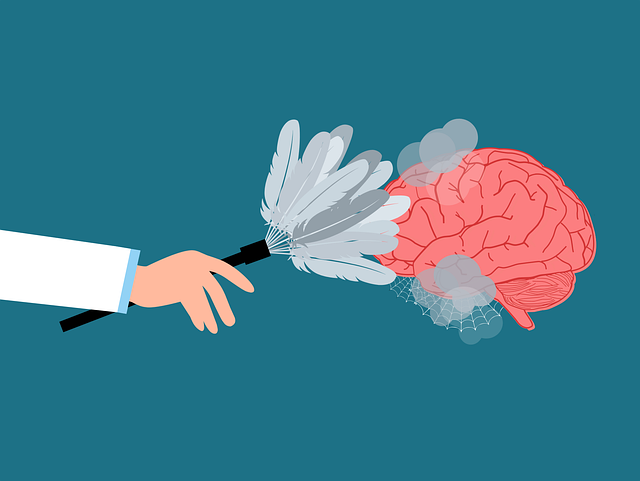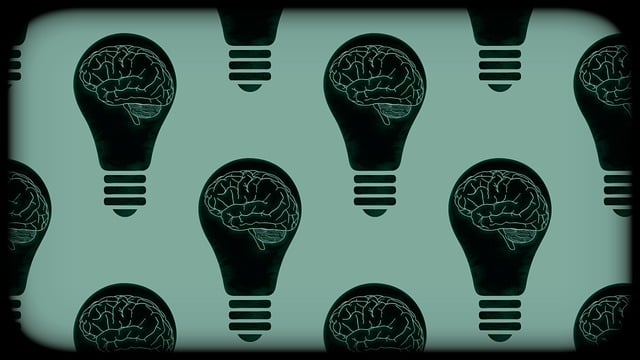Northglenn Divorce Therapy adapts its approach to embrace cultural sensitivity, recognizing that traditional Western practices may not suit everyone. They address cultural nuances during emergencies with tailored crisis intervention guidance and offer mental health education programs designed for diverse backgrounds. Their focus on culturally sensitive care, including self-awareness exercises and community outreach, creates an inclusive environment that respects clients' unique identities and promotes successful therapeutic outcomes, setting them apart as leaders in culturally competent mental healthcare in Northglenn.
Mental healthcare, a crucial aspect of well-being, must be accessible and sensitive to cultural diversity. This article explores the intricate balance between cultural sensitivity and mental health treatment, highlighting its importance in today’s diverse society. We delve into the challenges faced by professionals, offering insights on overcoming barriers through culturally competent practices. From understanding cultural nuances to implementing effective strategies, this guide aims to enhance care. A case study of Northglenn Divorce Therapy demonstrates how cultural awareness can revolutionize therapy, ensuring inclusive support for all.
- Understanding Cultural Diversity in Mental Health Care
- Challenges and Barriers to Cultural Sensitivity
- Strategies for Culturally Competent Practice
- Northglenn Divorce Therapy: A Case Study in Cultural Awareness
Understanding Cultural Diversity in Mental Health Care

In the diverse communities of Northglenn, understanding cultural sensitivity is paramount in mental healthcare practice. With a rich tapestry of ethnic backgrounds and unique cultural perspectives, it’s essential to recognize that traditional Western approaches might not always resonate with all individuals. Mental health professionals play a crucial role in adapting their practices to meet the specific needs of clients from various cultural backgrounds. This involves delving into the complex interplay between cultural beliefs, values, and mental health expressions, ensuring sensitive and inclusive care.
By embracing cultural diversity, Northglenn Divorce Therapy can foster an environment where clients feel understood and supported. Incorporating strategies for depression prevention, resilience building, and trauma support services tailored to individual cultures enhances therapeutic outcomes. This nuanced approach not only respects the client’s identity but also empowers them to share their experiences openly, paving the way for more effective treatment and healing.
Challenges and Barriers to Cultural Sensitivity

Implementing cultural sensitivity in mental healthcare can be challenging, especially in diverse communities like Northglenn. Barriers often stem from misunderstandings and lack of awareness about different cultural beliefs and practices. For instance, some cultures may approach therapy differently, emphasizing community involvement or traditional healing methods rather than individual talk therapy. These variations can create a gap between patient expectations and the services offered by mental health professionals.
Additionally, language barriers pose significant challenges, requiring interpreters to facilitate communication accurately. Cultural nuances in communication styles, such as directness or indirectness, can lead to misinterpretations. Moreover, historical trauma and intergenerational effects within certain communities may require specialized knowledge and skills. Mental wellness coaching programs focused on cultural sensitivity development, conflict resolution techniques, and emotional well-being promotion techniques are crucial tools for therapists, ensuring they can navigate these complexities effectively.
Strategies for Culturally Competent Practice

In the pursuit of providing culturally sensitive mental healthcare, therapists at Northglenn Divorce Therapy employ various strategies to ensure inclusivity and understanding. One key approach is crisis intervention guidance tailored to address cultural nuances during times of emergency or acute stress. This involves a deep awareness of community-specific coping mechanisms and resources, enabling therapists to offer effective support while respecting traditional healing practices.
Additionally, the integration of mental health education programs design that cater to diverse cultural backgrounds is vital. By providing culturally relevant information and skills, these programs empower individuals to navigate their mental health journeys with enhanced self-awareness and resilience. Promoting positive thinking within this framework fosters a safe space where clients can explore their identities and challenges without stigma, ultimately contributing to more successful therapeutic outcomes.
Northglenn Divorce Therapy: A Case Study in Cultural Awareness

Northglenn Divorce Therapy stands as a shining example of how cultural sensitivity can transform mental healthcare practices. Located in a diverse community, this therapy center has embraced the concept of self-awareness exercises tailored to address the unique needs of its clients from various ethnic and cultural backgrounds. By integrating these exercises into their approach, therapists at Northglenn have fostered an environment where individuals feel understood and respected.
The center’s success extends beyond individual therapy sessions. They have also implemented a robust Community Outreach Program that bridges the gap between mental healthcare and diverse cultural communities. This initiative involves hosting cultural sensitivity workshops, offering mood management strategies specifically adapted for different cultures, and collaborating with local community leaders to dispel stigma. Through these efforts, Northglenn Divorce Therapy is not just providing services; they are building trust, promoting understanding, and ensuring that mental health support is accessible and culturally competent for all members of their diverse community.
In conclusion, cultural sensitivity is an indispensable aspect of mental healthcare practice. By understanding and addressing diversity, navigating challenges, and adopting culturally competent strategies, as exemplified by Northglenn Divorce Therapy, providers can create inclusive environments that foster effective treatment for all individuals. This approach not only enhances patient outcomes but also ensures ethical and respectful care in a diverse society.












